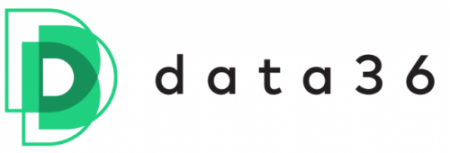I’ve talked a lot already about the three primary skills you need to know for data science: coding, statistics and business thinking… But it’s worth listing those secondary soft skills that you might need to be efficient and successful in day-to-day work as a data scientist.
Today, I’ll talk about the three most crucial of these soft skills:
- Presentation skills
- People skills
- Project management skills
Note: this article is available in Youtube video format here — and in podcast format here (and on Spotify, iTunes, Google Podcast, etc.)
Presentation skills
You can be the best data scientist — if you can’t present your findings in a meaningful, engaging and memorable way — you won’t make any impact. Simple as that. I mean, you don’t have to be the next Steve Jobs… but you have to be a good enough presenter to let everyone in management understand the key takeaways of your data projects.
Even better if you can make your audience excited about your findings.

Giving a great presentation is a complex task but here are few key points that you have to watch out for:
- Explain the key concepts and key takeaways simply!
- Make sure that your audience knows exactly what you are talking about. (E.g. don’t use words that you know they won’t understand.)
- Make your charts easy to interpret!
- Use simple and clean slides!
- And as for the delivery of your presentation: practice, practice and practice as much as you can!
I mean, public speaking is literally an art in itself. But if you want to read more about presentation tips for data scientists, check out my article here.
People skills
As a data scientist, you’ll have to communicate with your colleagues more than in other IT positions (e.g. more than a developer). The data-related jobs are not only about coding, statistics and machine learning. They have their business side, too. And business by its nature comes with a lot of discussions, brainstorming sessions, negotiations and so on.
And for that, you’ll have to know how to talk to people. This is not magic, either. There are a few basic rules of efficient communication that haven’t really changed in the last few decades. You can learn these quickly by reading any of the communication-related Dale Carnegie books. (If you ask me, they’ll provide you with solid fundamentals… but if you’ve read one, you’ve read them all. :-))

And another thing that will help is to understand and recognize the different personality types. Once you get why it is so different talking to your extroverted and results-oriented manager and an introverted and more relationship-oriented web designer, you won’t get anxious about it anymore. Especially if you can identify your own personality type and learn your strengths and weaknesses when communicating with others.
An easy and fun way to get started with that is filling in a basic personality test, here: https://www.16personalities.com/
Note: I know, for a few of you, a personality test might feel like BS, but read more about it! This 16personalities.com’s test has an actual deep scientific background. Otherwise I wouldn’t recommend it.
Project management skills
Whether you’ll work in a team, or as a stand-alone data scientist, you’ll have to have some project management skills, too. It’s easy to get lost in the tiny details of a data project… so it’s better to use a framework.
Project management has its own science nowadays and to be honest, I’m not an expert in it. There is lean, there is agile, kanban, gtd-system and so on and so forth. You should feel free to try out each and every of them and go with the one you like the best.
Note: bigger companies have standardized methods and probably they will even provide you with a coach to help get organized.
As for me, I simply use to-do lists.
More precisely: I have a long list of to-dos, prioritized. I have a short list of things that I’m currently working on. And a log of things that I’m done with. This method is simple and it serves me well.
So it doesn’t have to be complicated. But you’ll have to improve project management skills to be efficient and productive as a data scientist.
Speaking of which, here are my productivity tips for data scientists.
Conclusion
So that’s it. To become an excellent data scientist, besides the three most important skills (coding, statistics and business thinking) spend some time learning about these three soft skills, too:
- Presentation skills
- People skills
- Project management skills
It’ll pay off throughout your career.
- If you want to learn more about how to become a data scientist, take my 50-minute video course: How to Become a Data Scientist. (It’s free!)
- Also check out my 6-week online course: The Junior Data Scientist’s First Month video course.
Cheers,
Tomi Mester
Cheers,
Tomi Mester

